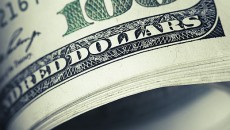Market Sees “Greener” Pastures for Europe’s Debt Crisis
World markets achieved their best weekly performance in over two years on Friday. The Dow, S&P 500, and the NASDAQ closed on Friday with gains of 1.5%, 1.7%, and 1.8% respectively. European markets saw the bulls in full action for the week: Britain’s FTSE gained more than 3%, Germany’s DAX gained 5%, and France’s CAC gained 4%. On Monday the stock market rose by 3%, the best single-session percentage gain in nearly seven weeks; this improvement in investor outlook comes after last week’s rumbling market volatility.
The market saw strong corporate earnings in a week that started and ended in green territory. Google (GOOG) and JPMorgan Chase (JPM) exceeded analyst expectations, however JPM later sharply sold off due to questions swirling around the authenticity of the stock’s aggressively bid up price leading up the company’s Thursday quarterly announcement; this resulted in a rough 5% drop in the KBW Bank Index.
Commodities overall saw mixed activity with substantial volatility without a sense of direction, but picked up gains on Friday. Gold remained stable and was not able to break out of the $1,700 price level. Nonetheless, gold futures pursued a bullish trend throughout the week with a Friday closing at about $1,680 per ounce, adding 0.8%. In Friday’s trading, oil rose $3.05/bbl while finishing just below $87.30. Copper gained 3.8%; hogs rose 2.2%.
Much of the market’s stellar performance this week can be attributed to a more positive sentiment towards the Europe’s sovereign debt crisis. For months world markets have been plagued by the uncertainty and a lack of confidence in the fiscal sustainability of the European 17-nation bloc. This sudden rise in market bullishness came as French and German policymakers announced earlier this week that they would commit to developing a comprehensive plan aimed at restoring stability to European banks.
Many investors focused on Europe this week as they waited on European votes for the European Financial Stability Facility (EFSF) – an enhanced bailout fund financed by various Eurozone member nations in an effort to tackle Europe’s sovereign debt crisis. On Tuesday, there was slight apprehension as to whether the EFST would win approval as Slovakia initially voted down the measure; however Slovakian officials later stated their commitment to the backing of the bailout mechanism. The major reasoning for the proposed EFSF measure is to expand the fund’s powers and allow the fund to aid hard-hit European banks, buy debt of stressed Eurozone nations, and offer credit lines to governments.
FOMC meeting minutes were released on Wednesday; this had no significant impact on market activity due to the fact that it offered no new insight into the committee’s policymaking plans for the immediate to long-term future.
Bearish sentiment towards the Dollar sent the U.S. Dollar index lower by $0.50. The Euro and the Pound both gained against the Dollar. Despite this bearishness towards the Greenback, the dollar made gains against the Yen where USD/JPY reached $77.23 before Friday’s close. The 10-year Treasury yield rose by six basis points to 2.25%; the 2-year Treasury yield declined one basis point to .27%.
-Shaun Hoyes
Article submitted by: Shaun Hoyes of the Capital Markets Lab (CML). To learn more about the Capital Markets Lab (CML) please visit https://business.fiu.edu/capital-markets-lab/.




